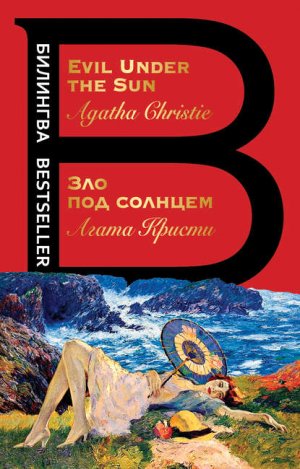Зло под солнцем / Evil Under the Sun Кристи Агата

Читать бесплатно другие книги:
В густых лесах, где-то между двумя российскими столицами, притаился провинциальный Озёрск – небольшо...
Ангелина – самая обычная на вид девушка, которая учится на последнем курсе Университета Магии и Воро...
Бывшего ректора Академии магического познания предпочитали обходить стороной. Поговаривали, будто вы...
Третья книга серии "Безумная вселенная" Кланы, бояр-аниме, политика, черный юмор и полное отсутствие...
Я Льяра Яррант, дочь советника, племянница императора и тот еще везунчик. Еще вчера я и не мечтала п...
Эта книга включает в себя наиболее полную информацию о практическом использовании рун трех строев: с...






